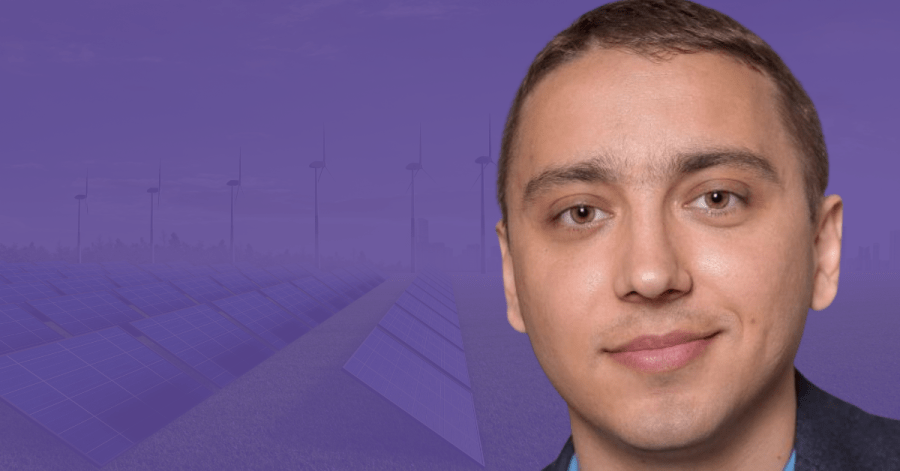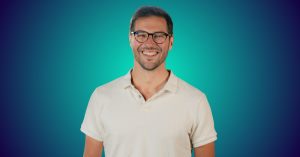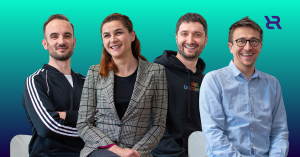Recently, Dublin-headquartered Romanian startup NRGI.ai announced raising a €250K pre-seed round from Fortech Investments, the VC arm of the Cluj-based software company Fortech, and American VC fund TechStars. Essentially, NRGI.ai is building an AI-based B2B energy marketplace that matches demand and supply, while helping energy users save costs and manage risks.
This comes in the context of new challenges and needs of energy consumers brought about by the liberalization of the electricity and gas markets, as well as energy supply chain disruptions caused by the pandemic and the recent war on Ukraine, as all of these developments lead to even higher volatility of prices.
The platform equips industrial consumers of electricity and gas with fair energy price benchmarks, using an AI-based forecasting engine, and then connects them to potential electricity and natural gas distributors.
The Recursive met with Andrei Ilas, co-founder and CEO of the B2B energy marketplace NRGI.ai. He has spent the last decade dealing with costs, risks and volatility of energy markets at a global level, while working as an energy analyst at different expert institutions including the International Renewable Energy Agency (IRENA) and The World Bank.
In the interview below, read more about:
- The NRGI.ai team, their plans to raise a seed round and expand in the European market;
- How their product and business model work;
- What is important for a VC investor when making a decision about a climate tech startup investment;
- What can make it easy for entrepreneurs to embrace failure.
The Recursive: What is the story behind NRGI.ai? What impact did you set out to achieve when launching?
Andrei Ilas: We founded the company in the second half of 2021 by selling forecasts of power prices on the Romanian market to a few companies. Midway through contracts, we realized that the underserved part of the market are the buyers of electricity. They don’t have enough information and understanding of markets in order to get fair prices.
So, our mission is to bring fair prices to companies in Romania and Europe, to start from. By doing that, we will be contributing to the global energy transition, because we will be increasingly dependent on renewable energy in the future. And in this world, everybody will be incentivized to pay attention to their costs, prices, and consumption.
The team consists of two other co-founders: Vlad Iliescu, our CTO, who is one of the 150 Microsoft MVPs in artificial intelligence globally, and Florin Grosu, our COO and a serial entrepreneur. We also have an extended team of six developers provided to us by one of our investors, Fortech Investments.
We plan on launching the product on the Romanian market in July 2022, and having the first transaction by September.
Then, we aim to raise a €1 million seed round to develop the B2B energy marketplace platform in Italy, Germany, Spain, and the United Kingdom, the biggest electricity markets in Europe.
What does the product offer, and how does your business model work?
Our product is a B2B energy marketplace where buyers of electricity can upload information on their historical consumption. In turn, we provide them with estimates of fair prices, and we invite suppliers – utility companies to bid to serve this demand in a fair and transparent way. So, we provide a space for contract closures. We get paid by the utilities.
Our algorithm is based on a fundamental modeling of electricity markets and artificial intelligence to forecast future trends.
It instantly provides a fair price benchmark, which companies can use to ask for requests for proposals, negotiate, and close contracts with the utilities on the platform.
With these services, our goal is to be an independent guarantor of fair prices.
You just raised a €250K pre-seed round. How do you plan to use the new funds?
Yes, we just closed our pre-seed round, raising money from two investors, American VC fund TechStars, who also offered us a place in an accelerator program in Torino, Italy, and Fortech Investments. A substantial part of the capital will be spent on marketing campaigns and a bit of testing on the Italian market, which is our next target before the seed round.
What is important for a VC investor when making a decision about a climate tech startup investment?
What is important for every VC investor when evaluating a potential target is seeing a solid team. VCs want to see that founders have some experience and a certain degree of understanding of the market.
Otherwise, be honest, admit that you are during a testing stage, and that you will be using the money to test hypotheses that you feel strongly about. It is also important to understand that at this early stage investors do not expect very detailed plans.
VCs want to see that they are dealing with flexible thinkers.
What are the advantages and disadvantages of launching in the Romanian market?
It is a highly illiquid market, it doesn’t function as well as markets in Western Europe. The knowledge among utilities and buyers of power market fundamentals is weak. And in the current context, where prices have increased five times since last year, there is a significant demand from corporations to get fair prices and insights on how to optimize consumption. This would be an advantage for us, next to our good understanding of the market.
However, the lack of functionality, illiquidity, and poor regulations in the market are also a disadvantage.
How can we prepare a sustainable roadmap for the energy independence and green energy transition in Southeast Europe?
It is clear that in Southeast Europe we are too dependent on Russian gas, which is not reliable. Decreasing this dependency will be the most important thing in this decade, and a necessary step at that, even if it is an expensive one, because we need to stop financing their war machine.
Yet, unfortunately, we need a bit more gas to power the transition to net zero. And that is because it is the cheapest way to account for the variability of renewables, so, to keep the lights on when the wind does not blow and the sun does not shine. This is especially important in our region, which is a bit of a laggard on renewable energy deployment. We definitely need to accelerate our transition to clean energy sources.
Then we need to invest massively in energy efficiency, in building retrofits and everything that can decrease our energy consumption.
At the European level, there is a similar situation, where we are too dependent on Russian gas and oil. We already decided not to buy coal from Russia, which is a good start to reduce fossil fuel imports from them. Then, we need as many low carbon sources of energy as possible: wind, solar, biomass, even nuclear, for which France has a solid plan.
What are your goals for the Torino Cities of the Future TechStars Accelerator?
What is most important is that programs like these are usually run and attended by people with tremendous experience in the ecosystem. As a founder, they can provide you with a lot of structure, help you ask the right questions that can solve potential problems, which you may have not known you have. Then, it is an occasion to build or extend your network of potential investors, mentors.
What are the key marks of a smart city, and how does NRGI.ai fit in as a solution?
In terms of consumers and suppliers of energy, the largest ones are in cities. That was a key reason for us to apply in this accelerator.
Going forward, we know the environmental impact of the biggest cities in the world is quite significant. They are a key variable on our road to net zero. So, it’s very important to help cities deal with these issues.
The first stepping stone for cities is to understand their carbon footprint and how they can reduce it across activities, including energy affordability and security, where we bring added value.
With the B2B energy marketplace, we aim to make cities smarter about their energy consumption and help them prepare for the transition towards clean energy and renewable energy sources in particular.
What is your personal definition of success? And what keeps you motivated?
For me, entrepreneurship is a lifestyle more than anything else. I don’t necessarily have targets about getting somewhere; for me, it is more about servicing.
As an entrepreneur, I care a lot about building optionality and testing, and the freedom that comes with it.
Entrepreneurs are generally quite lucky because they can fail better and a lot more than people in other positions. They have increased optionality to follow opportunities and developments in the market. This allows you to create a professional road where you are in charge to a great extent. This is very motivating for me.
Generally, the ecosystem is built so that people are allowed to fail, because in the end, the companies that make it compensate for everyone else’s failure. This is something that I learned in the last months.
It’s very important to understand that the money in the ecosystem is there to allow people to fail. This is an impetus for all of us to be courageous and stop fearing failure, and failing with other people’s money. Failure is part of the process and the whole ecosystem knows it and is built to withstand it.








